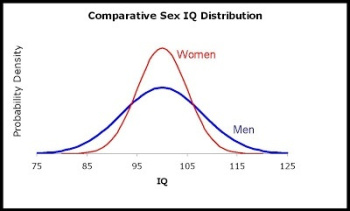The range of men and women I happen to be reading The Puppet Masters, a Heinlein novel from the 1950s … and came across this line: “Listen, son—most women are damn fools and children. But they’ve got more range than we’ve got. The brave ones are braver, the good ones are better—and the vile ones are viler. . . .” What struck me about the above quote is how it goes in the opposite of current received wisdom about men and women, the view, associated with former U.S. Treasury Secretary Lawrence Summers, that men are more variable than women, the “wider tails” theory, which is said to explain why there are more male geniuses and more male imbeciles, more male heroes and more male villains, etc. Heinlein’s quote above says the opposite (on the moral, not the
Topics:
Lars Pålsson Syll considers the following as important: Statistics & Econometrics
This could be interesting, too:
Lars Pålsson Syll writes Keynes’ critique of econometrics is still valid
Lars Pålsson Syll writes The history of random walks
Lars Pålsson Syll writes The history of econometrics
Lars Pålsson Syll writes What statistics teachers get wrong!
The range of men and women
I happen to be reading The Puppet Masters, a Heinlein novel from the 1950s … and came across this line:
“Listen, son—most women are damn fools and children. But they’ve got more range than we’ve got. The brave ones are braver, the good ones are better—and the vile ones are viler. . . .”
What struck me about the above quote is how it goes in the opposite of current received wisdom about men and women, the view, associated with former U.S. Treasury Secretary Lawrence Summers, that men are more variable than women, the “wider tails” theory, which is said to explain why there are more male geniuses and more male imbeciles, more male heroes and more male villains, etc. Heinlein’s quote above says the opposite (on the moral, not the intellectual, dimension, but I think the feeling is the same).
My point here is not to use Heinlein to shoot down Summers (or vice-versa). Rather, it’s just interesting how received wisdom can change over time. What seemed like robust common sense back in the 1950s, has turned around 180 degrees, just a few decades later.

